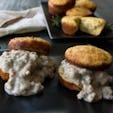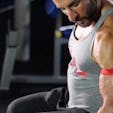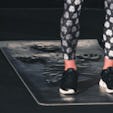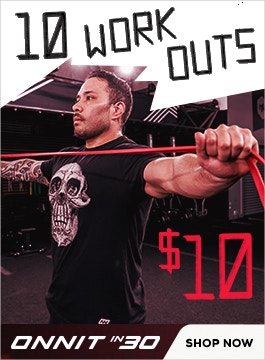How to Approach Dieting for Muscle Building
Confused about the best muscle building diet to become a strong, lean badass?
Sick of trying to figure out exactly how to eat for optimal health AND physical performance?
You’re not alone.
With thousands of conflicting articles, it seems like you can’t eat anything anymore.
“Carb are evil” vs “You have to eat carbs to train hard and be fit.”
“Protein is essential for building muscle” vs. “Meat is going to give you cancer and make your face fall off.”
It’s maddening and leaves you helpless. You sit there thinking, “If this whole fitness thing is so complicated, f*ck it. I’m out.”
It doesn’t have to be this way.
You don’t have to become one of those weirdos who practices religious adherence to a certain diet.
And you certainly don’t have to feel your head spin as you try to navigate the world of nutrition.
I’m able to maintain visible results year round, as are my clients, by eating just 1-2 big meals per day and not having to survive on boiled chicken breasts and steamed broccoli. In fact, we can do it while eating delicious meals every day of the week.
Below, you will find 8 important tips that will give you everything you need to get strong and ripped. And at the same time, they will give you tons of energy and lifelong health.
This list is the result of nearly 30 years of experimentation on myself and thousands of clients.
It also includes the essential takeaways from countless conversations with nutrition experts, performance coaches, and doctors who specialize in health, performance, and longevity.
By following these principles, you can expect to achieve¦
â Faster and easier fat loss
â Lean muscle gains with less added body fat
â More energy during the day
â More focus and mental clarity
â Better digestion
â Enhanced immune system functioning
â Higher sex drive
â Less aches and pains
â Better moods
Alright. Let’s get to it.
1) Eat Real, Whole Foods 90% of the Time

Any nutrition plan aimed at physique transformation or increased performance has to be healthy.
For some reason, people either forget or completely ignore that concept. So, they start eating several pounds of meat every day, drinking sugary workout drinks, and ordering cheese fries with their salmon because they’re in bulk mode.
You have to be smarter than that. As an adult you have to take responsibility for your health. You can’t drink soda or complain about not “liking the taste of water.” That’s what kids do.
Your diet must focus on optimizing your well-being and quality of life.
If you don’t enjoy a state of robust health and vitality, who cares how your abs look? That won’t last forever.
And while you can debate what the “optimal diet” looks like, there is one, unanimous concept.
The healthiest diet consists of a wide variety of whole foods. Things that grew in the ground or had a face.
If it has more than five ingredients, it’s probably crap. If you never heard of or can’t pronounce some of the ingredients, it’s definitely crap.
In other words, the foundation of your diet should contain lots of the following:
â Potatoes of all kinds, squashes, and other roots or tubers
â Grains like rice and oats
â Vegetables of every color
â Fruits of all varieties
These foods will load you up with essential vitamins, minerals, and antioxidants. Plus, they provide the carbohydrates that fuel your training and energy throughout the day.
(Yes, you need carbs, more on that later).
After this foundation of plant foods, you need to add in some animal products, like meat and eggs, which will provide¦
Protein – This is an essential nutrient for building muscle and improving your performance. Aim for one gram per pound of bodyweight per day. No one needs more than that.
Healthy Fats – These are critical for avoiding heart disease, diabetes, and chronic illness. They also keep your hormonal health up. That’s especially important for you guys who need to keep your testosterone up (i.e. every man who reads this article).
Essential Vitamins and Minerals – There are some things your body needs that it can’t efficiently get from plants.
Things like B Vitamins, Copper, Zinc, and Iron. Luckily, animal foods are the most potent sources of some of these nutrients. This combination of whole, unprocessed plant and animal products will give you the most nutrient dense diet possible.
And a nutrient dense diet means you will have everything you need to perform at your peak every day.
2) Eat Whatever You Want 10% of the Time

If you’re smart with your diet and track your macros as I suggest, you will have plenty of leeway to eat tasty, delicious foods every day. And sometimes they will be foods that are widely considered unhealthy.
I’m talking about having a few slices of pizza or a burger or even some ice cream when you’re out for a social occasion. As long as you are not exceeding your daily allotment of carbs or fat, you’ll be totally fine.
A flexible dieting plan like this is the only one that will work long term and allow you to stick with it for life. Now, that’s no excuse to eat crap. You should still eat very healthy foods most of the time, then when the desire strikes or it’s a special occasion, you can feel free to indulge.
3) Eat Enough to Feel Energized
A healthy diet shouldn’t only make you look good, but it should make you FEEL good.
Most diets you see in magazines or on the internet do just the opposite.
They require you to cut out all carbohydrates and calories which just gives you cravings and brain fog. And, you have zero energy for workouts, with the sex drive of an 89 year old man.
You can’t be getting by on minuscule amounts of calories. That just sucks. And you’re never gonna stick to that for more than 60 days.
Sure, you might lose a ton of weight in those first couple months. But after that, you’re so sick of the plan that you go back to your old habits and put the weight right back on.
Instead of going with an extreme approach, you need to find a diet that you can stick to.
And the diet you can stick to is one that gives you enough calories to maintain focus, and motivation. Day in and day out.
4) How Much Do You Need To Eat?
When it comes to setting up your diet, don’t overthink it. You can spend hours analyzing your set up, trying to come up with the PERFECT plan. But it’s a waste of time.
You just need to pick a sensible starting point.
From there, the real magic is in the adjustments you make. This is where having a coach comes in handy. You’ll always benefit from an objective eye to make those decisions for you.
Now, I don’t expect you to obsessively weigh and measure every single thing that goes in your mouth at all times. But you’ll need to do it for the first month or two so you get good at eye balling portions.
Then once you get in the range of 10% body fat and want to start getting leaner, you will have to track and measure a little more strictly.
I recommend using an app on your phone for that like My Fitness Pal or My Net Diary.
Here are your starting calorie recommendations:
Fat Loss: 12 cals per lb bodyweight
Maintenance: 14 cals per lb bodyweight
Muscle Building: 16 cals per lb bodyweight
â Consume 1g of protein per lb of bodyweight.
â Eating more than this is unnecessary and does not lead to more muscle gain. (More on that below).
â Consume 1.5-3g of carbs/lb bodyweight.
â The fatter you are or the more aggressively you’re trying to lose fat, the fewer carbs you should eat.
â The leaner you are and the more size you’re trying to gain, the more carbs you can eat. I’d cap this at 3gm per pound of bodyweight, however. Once you get beyond that and need more calories, you should start to add them from fat.
â Fill in the rest of your calories with fat.
â For optimal hormone function that should be around 0.4g of fat per lb bodyweight. The only time you would need to go lower might be towards the end of a fat loss phase.
5) Eat 2-3 Meals Per Day

The old days of following a pro bodybuilder 6-meal per day style diet are long gone. Research has proven that meal frequency and meal timing don’t really matter that much. How much protein, fat and carbs you eat at the end of each day are what really matter.
Eating 5-6 small meals is a royal pain in the ass, highly inconvenient and very unsatisfying. If I’m gonna eat I’d rather load up my plate and enjoy it. Picking like a bird every few hours is no fun. It’s actually quite torturous.
I prefer to have my biggest main meal at dinner. Then on a training day I will have another big meal after my workout. In addition to that I will have 1-2 snacks, which is usually just a protein shake mixed in some green juice or something along those lines.
On off days, I might have a protein shake during morning hours a small sized lunch and a huge dinner.
Eating more often is not only an inconvenience, but it can also negatively affect digestion and testosterone levels.
6) Eat Carbs on a Daily Basis

Everyone and their mother jumps on the low carb bandwagon when trying to lose body fat.
But a few weeks in, you realize that it’s not quite the magical cure you were looking for.
Yeah, it works at first. You drop water weight and fat rather quickly. But, after the initial, rapid fat loss, everything comes to a screeching halt.
You look and feel like shit.
You have zero muscle fullness, can’t get a pump, and get gassed 20 minutes into your workout. Plus, you get exhausted as soon as you start doing high intensity conditioning.
The bottom line is it’s not a good look and it ain’t fun.
Cutting carbs is both unnecessary and counterproductive for your physique goals. You’ll lose fat faster and look a lot harder and fuller with carbs in your diet on a regular basis. Carbs are an essential component to a good muscle building diet that simultaneously burns fat.
The key is timing them properly and balancing them out with your protein and fats.
7) The Best Way to Time Your Carbohydrates
There are two primary times of the day to have carbohydrates:
1. Around your workouts
2. At night
If you’re hitting workouts that build strength and lean muscle, you need carbs.
They are the single best fuel for that type of exercise. And you will always feel, look, and perform better by keeping some in your diet. So, in the meal you eat 60-90 minutes before your workout, have 25-50 grams of carbs from one of the following:
â A small bowl of oatmeal
â A small sweet potato
â A fist sized portion of white rice
If you train in the morning or early afternoon and don’t feel like having an enormous meal at that time, don’t worry about it. Just get 20-40 grams of protein and another 20-50 grams of carbs and you’ll be set.
This could be a protein shake in some cherry juice or a small can of tuna with some instant rice. As long as you fuel up on starch sometime later that day, you’ll be fine.
The other time of the day to have a large portion of your carbs is at dinner. This works best from a social perspective because it gives you flexibility to enjoy a satisfying meal to close off the day. Plus, having some starchy carbs at night will help you sleep better. And better sleep means easier fat loss, better workouts, and higher testosterone.
So, at dinnertime, have as many starchy carbs as you need to feel satisfied.
For most people, this ends up being 1-3 fist sized portions of starchy carbs. This can be rice, potatoes, sweet potatoes, quinoa, or something else.
8) Learn How Foods Make You Feel
For every food that exists, there’s an article explaining that it’s full of poison.
Some will say that eating meat will catapult you into obesity. While others will tell you gluten and grains will riddle you with cancer and depression.
Much of that hype is overblown propaganda that makes you fear food and think you need a panel of medical tests to find out what foods to eat.
The whole purpose of eating well is to feel fucking awesome. And you don’t need to go to the doctor’s office to figure that out.
Here’s your 3-step plan to figuring out what foods you should and should not eat.
Step 1: Eat some food
Step 2: Take note of the foods in the meal
Step 3: Think about how you feel after the meal.
â Are you tired or full of energy?
â Did it digest well or leave you farting your face off?
â Did you get a weird headache or feel sharper than ever?
â You’ll also want to take note of how you feel the day after eating something.
For example, my nose gets stuffed up when I eat dairy. And it runs when I eat too many eggs. Sugar gives me a headache and hangover feeling.
Eventually, after a couple weeks, you’ll realize which foods make you feel best.
Eat those foods often. Don’t eat the ones that make you feel shitty.
That’s it. Done with that concept.
9) Don’t Fear Fruit
If you’re getting fat from eating some strawberries or an orange, you’ve got bigger problems than what this blog post can help you with.
But it’s highly unlikely that’s going to happen.
Fruit is one of the healthiest things you can eat.
I got suckered into the anti-fruit movement for a while but I found that with myself and my clients, it made no difference. And almost everyone always feels better when eating fruit. So I added it back into all my diets and the results were better.
I recommend 2-4 servings per day if you want to stay healthy.
10) Avoid the High Fat Bandwagon

Don’t go overboard on the “healthy fats.” That’s another mistake a lot of people make because of the popularity of low carb, Paleo style diets.
By this point, we all know that saturated fat won’t kill you. You should include healthy saturated fat in your diet.
But just because something is good for you it doesn’t mean you should consume huge amounts of it.
You shouldn’t be putting a half a stick of butter in your coffee and recklessly eating bacon every day.
Almost every physique athlete in history has followed a moderate fat diet.
They all know that you don’t get ripped eating sausage and mayonnaise.
Low carb, high fat diets are for sedentary individuals. NOT for hard training guys who want to build muscle and get strong.
Remember this: You should always eat based on your activity levels.
There are 3 main macronutrients- protein, carbs, and fat. Each one plays a specific role in providing energy and fuel for activity.
Protein: Supports muscle growth and recovery.
Carbs: Helps fuel high intensity activity. Things like sprinting, lifting weights, or do anything beyond moving at a very low pace.
Fat: Supports hormone levels and overall health. They also fuel low intensity activity like walking.
You can apply this knowledge to your diet.
For example, a couch potato doesn’t need carbs because he doesn’t do anything at a fast pace.
No Renegade Workouts, no hill sprints, no high intensity conditioning.
Low carb, high fat, moderate protein will be the healthiest diet for him.
But that’s not you. Those are a consistent part of your week, which means your main energy fuel needs to be carbs.
11) Don’t Believe the High Protein Myth
No matter what the supplement companies and bodybuilding mags try to tell you, the fact is you don’t need a ton of protein to build muscle. It’s a bunch of hype and bullshit all conjured up to sell more crap.
Eating huge amounts of protein does NOT lead to more muscle growth.
Believe me, I wish it were that easy. All we’d have to do is drink five protein shakes per day and we’d get HYOOOOGE.
Of course that doesn’t happen. All that does happen is we pee more, stress our internal organs, get fat, smelly, gassy, and inflamed. And we waste money.
Do yourself a favor and save the cash. Take it from someone who pissed a ton of it away on super high protein diets.
I’m not exaggerating when I tell you I have thrown away well over $100k on protein supplements and excessive trips to the butcher. None of it did any good.
You don’t need more than one gram of protein per pound of bodyweight, per day, to build muscle.
I’ve never had someone NOT look, feel, recover, perform and grow better by keeping a moderate protein intake like the one I laid out above.
Questions
Should I skip breakfast?
You don’t have to skip breakfast but I usually recommend pushing it back a few hours. Wake up, have some water, get some shit done, drink some coffee, then have your first meal anywhere from 2-6 hours later. If you’re not hungry, don’t eat. If you’re hungry, then eat. Keep it simple.
If you want more information on intermittent fasting check out this article. If you suffer from adrenal fatigue symptoms or can’t sleep, I’d recommend having breakfast a little earlier.
Should I drink protein shakes?
You certainly don’t have to if you can get enough of your protein from real food. The only benefit of protein shakes is the convenience and the fact that they offer a low fat form of protein. That being said, there is research showing that whey protein is beneficial both before and after a workout.
Should I have carbs before training?
I have always found that eating carbs before a workout definitely leads to a better training session, and research has proven that to be true. Try about 25-50 grams somewhere between 30 and 90 minutes before your workout. Some good sources include rice, oats, potatoes, baby food, and bananas.
Recapping The Ultimate Muscle Building Diet:
â Eat whole, unprocessed foods 90% of the time
â Eat whatever you want 10% of the time
â Eat enough to feel energized
â Eat 2-3 meals per day
â Eat carbs on a daily basis; putting the majority of them after your workouts and at night.
â Learn how foods make you feel
â Don’t fear fruit
â Don’t hop on the high fat bandwagon
â Don’t buy into the high protein myth
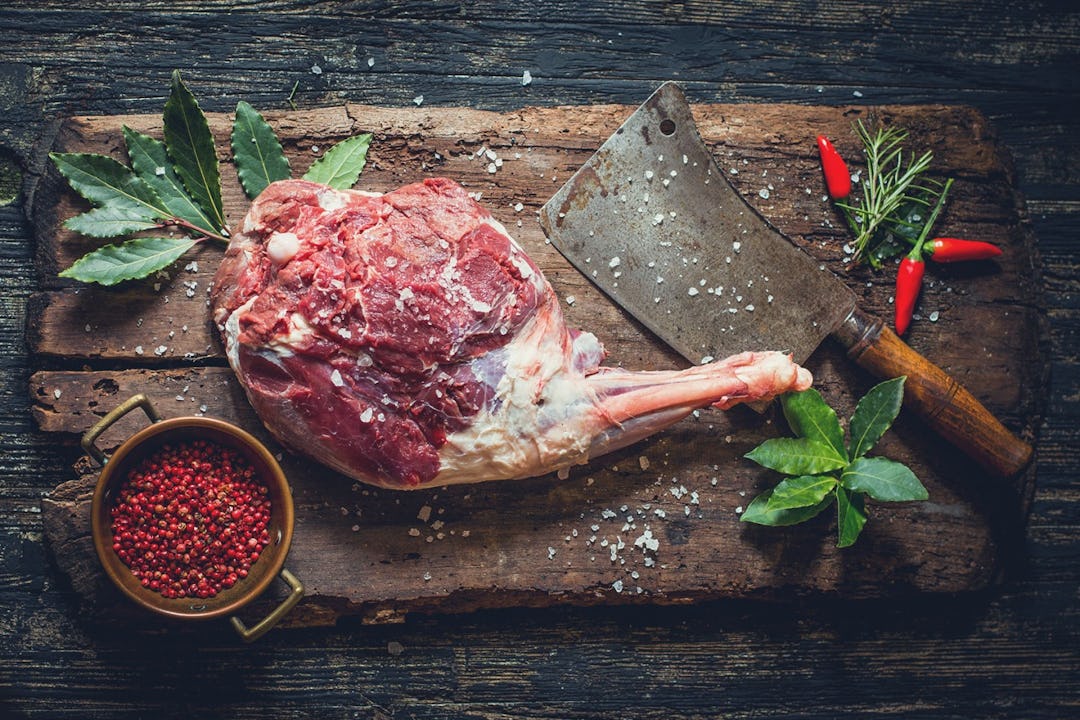
)
